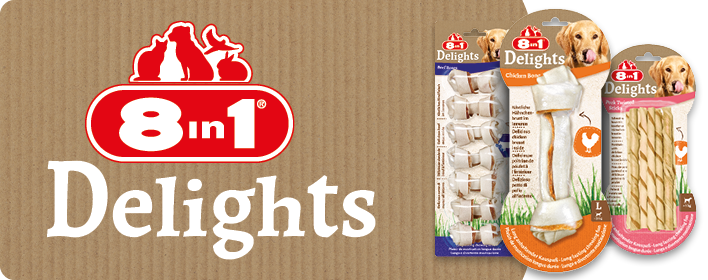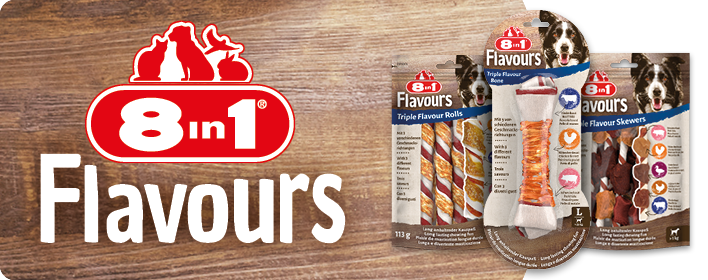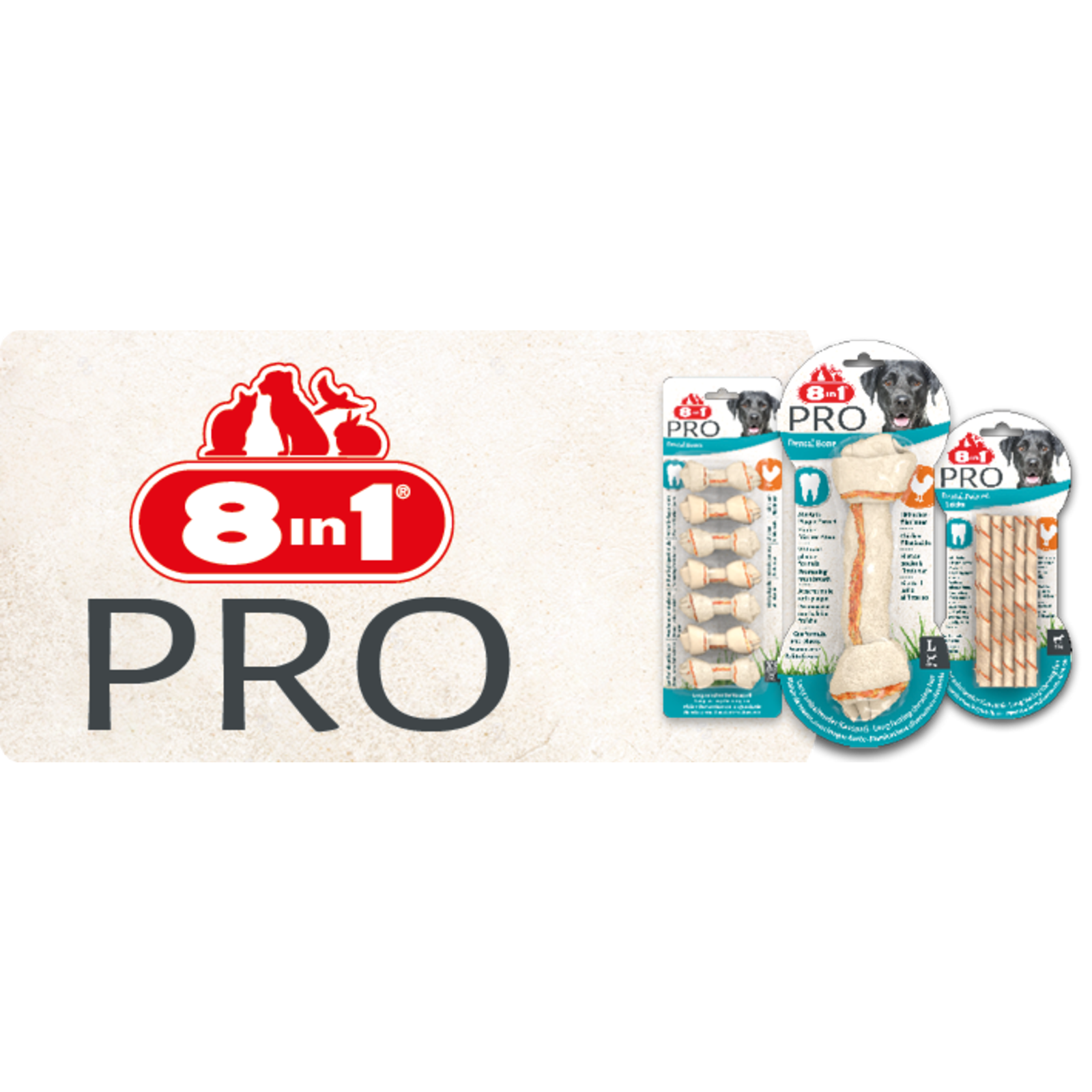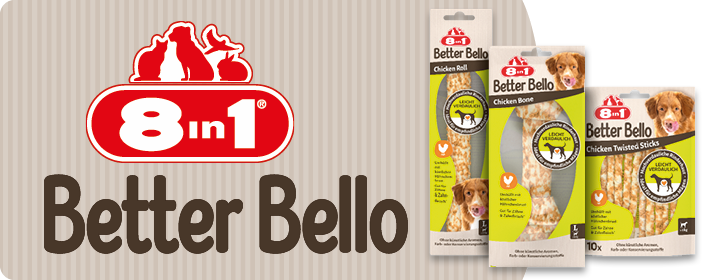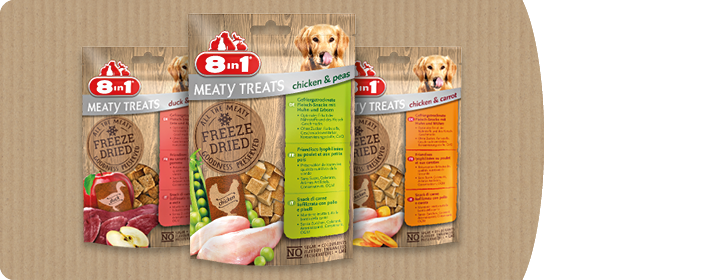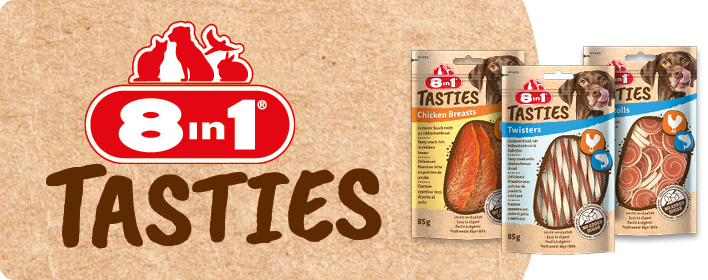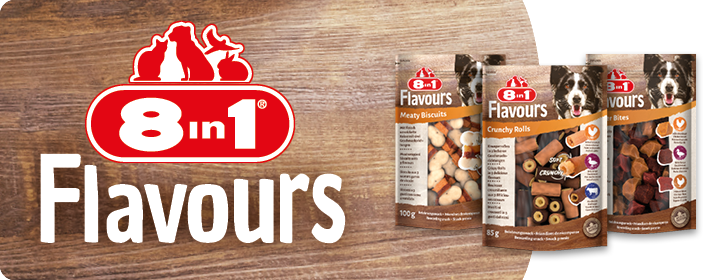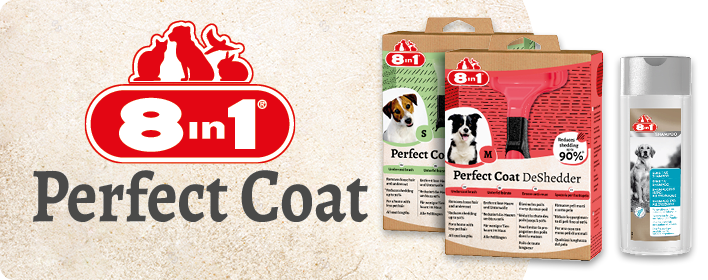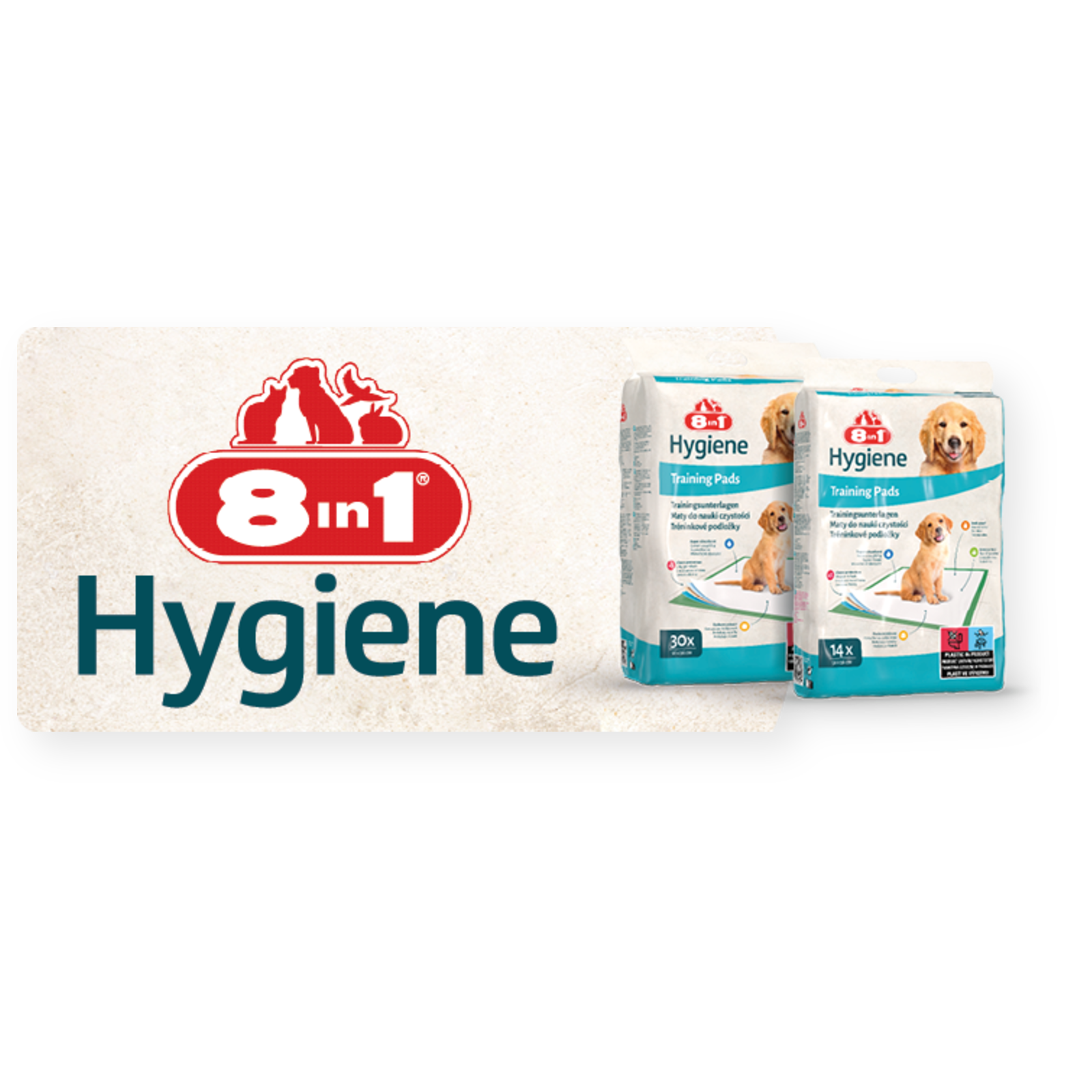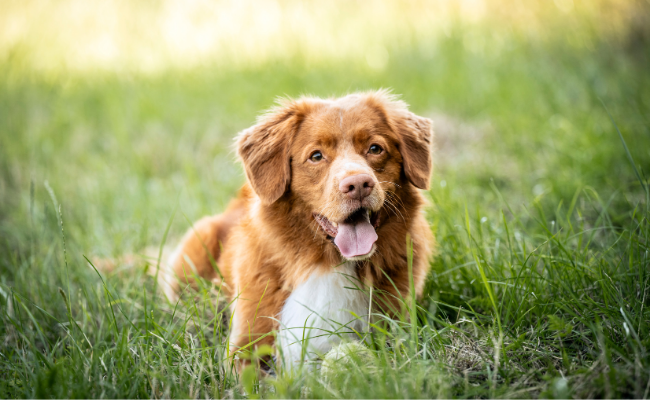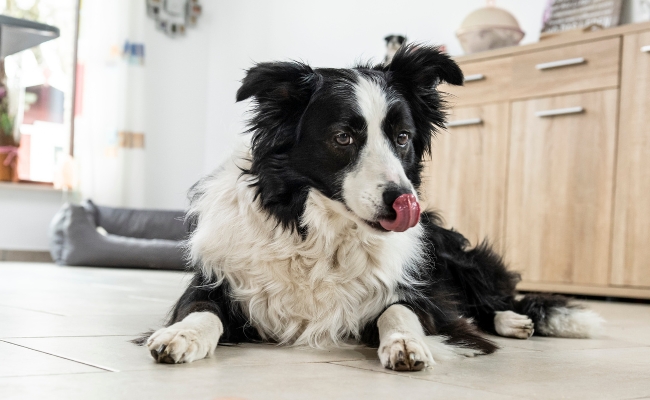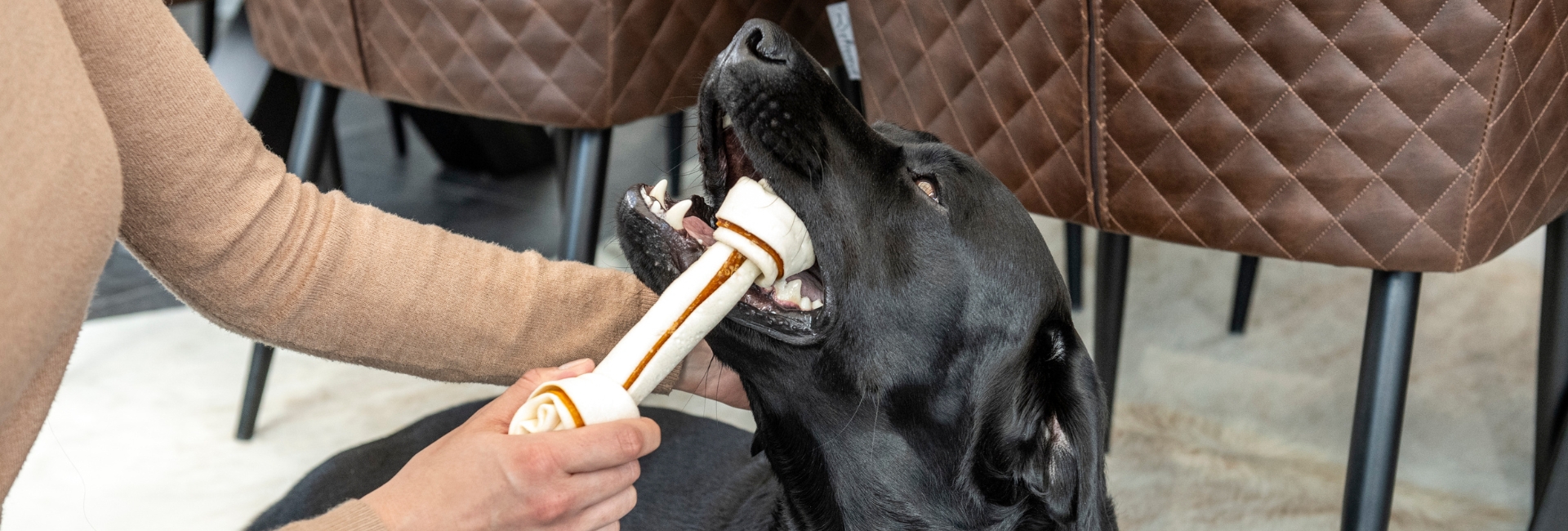


Dental care for dogs
How to keep their teeth healthy
Healthy teeth are equally important for dogs as they are for humans. Neglected dental care can lead to tartar, bad mouth odour and inflammation - often unnoticed and painful for the animal. A dog's teeth are designed to bite and chew prey, but not without care. In this article you will find out how the dog´s teeth are structured, why dental hygiene is so important, what problems often occur and what you can use to optimally care for your dog´s teeth.
A dog's teeth - anatomy, structure and development
A puppy initially has 28 primary teeth. A puppy begins to change its teeth from baby teeth to permanent teeth in its third month of life. This process is completed by the sixth or seventh month with 42 teeth. The incisors help with gnawing, the canines are for gripping and holding, while the molars tearing the food. Each type of tooth fulfils a specific function - a balanced set of teeth is therefore important.
However, dogs are prone to dental problems. Tartar, for example, is formed from plaque that is mineralized due to minerals in the saliva. Tooth fractures can also occur, for example due to chewing on hard objects or unsuitable toys. Regular check-ups and appropriate care help to prevent long-term damage.
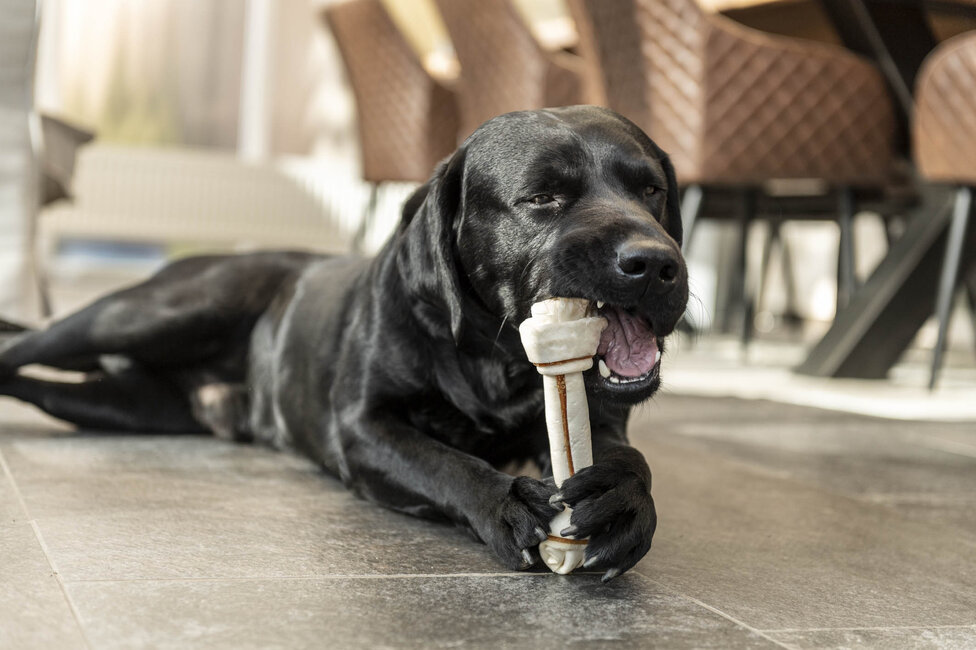
Do dogs need their teeth brushed?
Even if chewing on food or toys results in a certain amount of natural abrasion, this is often not enough to prevent dental problems. Especially with dogs eating softer food, plaque builds up quickly and can lead to tartar.
If dental care is neglected, there is a risk of inflammation of the periodontium (periodontitis), tooth loss or bad breath. Tartar is one of the most common causes of such diseases. Vets therefore recommend regular dental hygiene - ideally by brushing their teeth with a special dog toothbrush and toothpaste. Dental care chews or special dental gels can also help.
How does dental care work with dogs?
Good dental care for dogs should be carried out regularly, preferably several times a week, ideally daily. This effectively reduces plaque and tartar build-up.
There are various maintenance options:
- Brushing teeth with a dog toothbrush and special toothpaste is considered the most effective method.
- Chewables promote the abrasion of plaque and strengthen the gums at the same time.
- Food supplements such as powders or oils can support the oral flora and reduce tartar formation.
It is important to get your dog used to dental care early and gently. In the beginning, it is often enough just to briefly lift the lips or run a finger over the teeth. Rewards, patience and a calm environment help to develop a stress-free routine.
How to choose the right dental chew for your dog
Chewables support dental care naturally. Chewing creates mechanical abrasion, which reduces plaque and prevents tartar. At the same time, the chewing muscles are strengthened.
Natural chews such as pieces of antler or real bones may seem appealing because they last longer and keep dogs busy. However, they are not without risks: very hard chews can splinter or put pressure on the teeth, leading to painful fractures or injuries to gums and mouth. If you do choose such items, always match them carefully to your dog’s size, supervise closely, and stop immediately if you notice any signs of discomfort or damage.
Special dental care chewing products, like 8in1 PRO, are softer, specifically shaped and enriched with tooth-care ingredients. They specifically promote tooth cleaning and are generally better tolerated than very hard natural products.
Chewables do not replace tooth brushing - but they are a useful addition to everyday care.
Dog dental cleaning - When is a visit to the vet necessary?
Signs of dental problems include severe bad breath, discoloured teeth, reddened gums, pain when eating or increased salivation. Such symptoms should always be checked by a vet.
Professional dental cleaning at the vet is carried out under anaesthetic and is used for treatment - not prophylaxis. Tartar, plaque and inflammatory changes are thoroughly removed. In advanced cases, tooth removal may also be necessary.
Prevention includes regular check-ups at the vet, consistent dental care at home and the right diet. In this way, many dental problems can be detected early and avoided in the long term.
Conclusion: Dental care is preventive health care
The best dental care for dogs consists of a combination of different methods: regular tooth brushing, suitable chewing articles and, if necessary, additional care products. It is important to consider the individual needs of the dog - age, dental condition and preferences are all factors. If you consistently integrate dental care into your routine, you are making an important contribution to your dog's general health and well-being.




